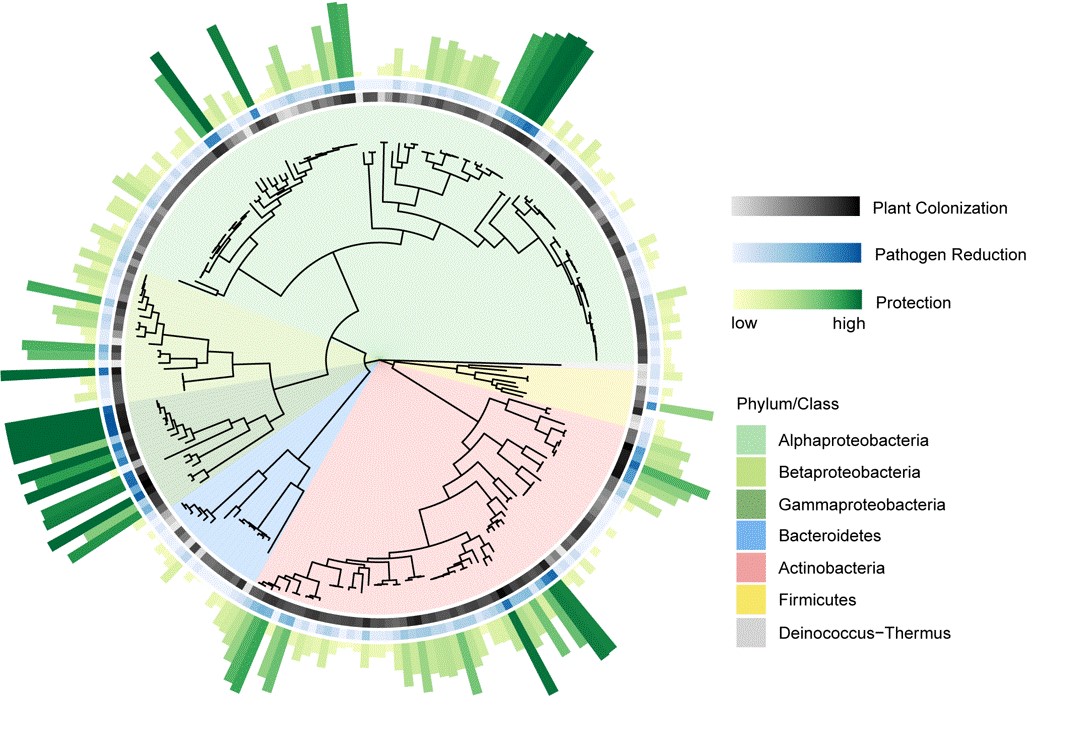Plant protection potential in the leaf microbiota of Arabidopsis
Plants can be protected from diseases by their resident bacteria. In a Nature Microbiology paper, the Vorholt lab systematically analyzed over 200 Arabidopsis leaf bacteria for their protection against a common pathogen and identified complementary mechanisms of protection at play.

Plants are constantly threatened by pathogens against which they must defend themselves. The plant microbiota can help in this regard. The Vorholt lab found that about 10% of the endogenous leaf microbiota members have the ability to protect Arabidopsis against the bacterial pathogen Pseudomonas syringae DC3000. The protective bacteria were found in distinct taxonomic groups but showed nonetheless a phylogenetic signal suggesting selection for this trait. The researchers show that a fraction of the microbiota strains require an intact plant immune system for protection, while others directly antagonize the invading pathogen. They further reveal that the potential for protection is boosted in synthetic microbial communities and demonstrate that emergent properties of microbial communities can be determined based on the community members.
Link to the paper in external page Nature Microbiology